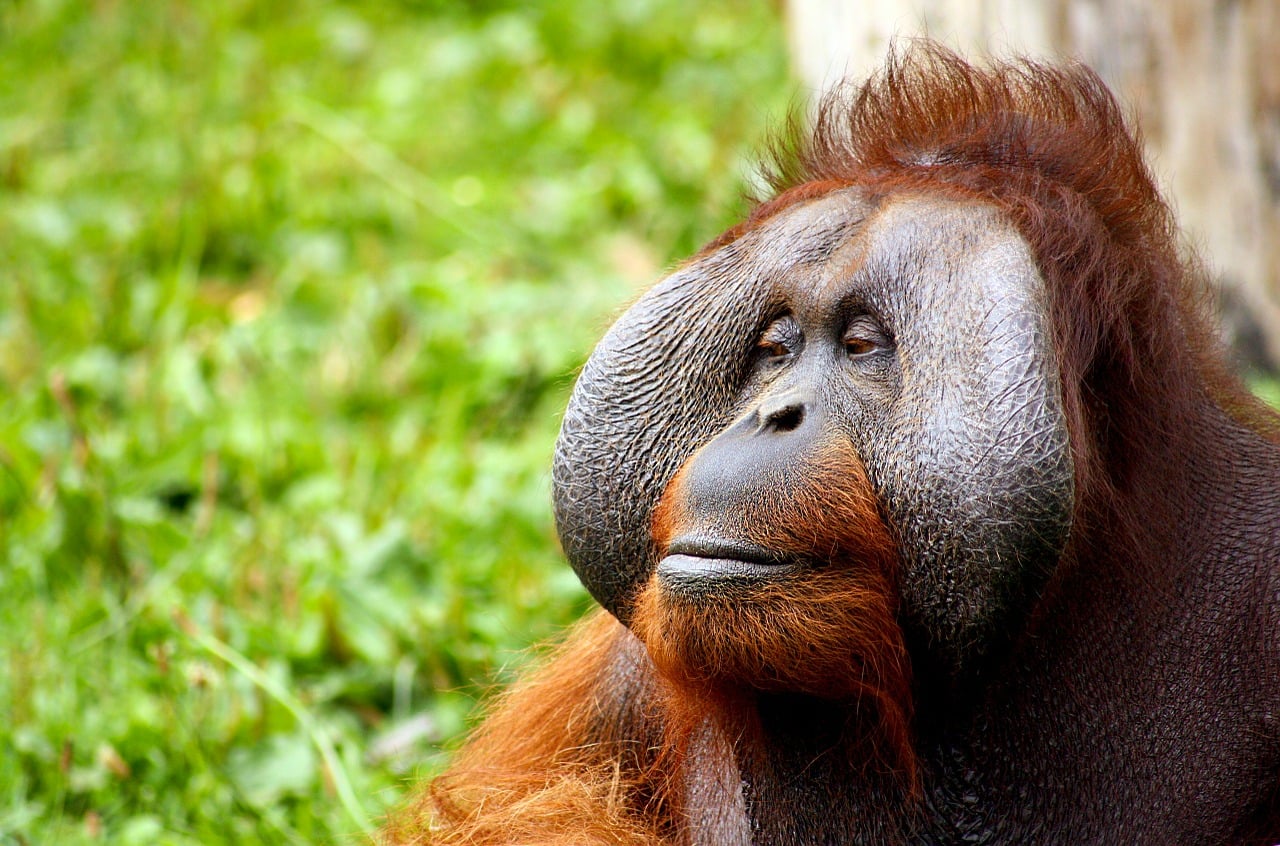The Borneo orangutan population is apparently on the decline. A new study found that the number of orangutans on the Asian island, and researchers say more than 100,000 of them in only 16 years, slashing the population in half during that timeframe. This finding is made even more concerning with the realization that orangutans are native only to the islands of Borneo and Sumatra.
The research team, led by Maria Voigt from Germany’s Max Planck Institute for Evolutionary Anthropology, published their findings in the journal Current Biology, and They say that the Borneo orangutan population is down to between 70,000 and 100,000. They add that over 148,000 orangutans died on Borneo between 1999 and 2015.
The researchers expect the Borneo orangutan population to decline by about another 45,000 by 2050 just from deforestation, and that’s not the only reason they found for the declining numbers. They explained that the deforestation is the result of logging and the practice of clearing land for mining or to use for agriculture, but the orangutans’ natural habitat is being destroyed in the process. The orangutan, which is an endangered species, then struggles to survive in environments without forests.
However, researchers were less concerned about deforestation and more worried about another finding. They said that most of those that died during the 16 years they studied the Borneo orangutan population were living in forested areas. As a result, they believe that mass killings of the great ape are taking place. The research team said that based on their interviews in Kalimantan and their own projections of hunting pressures on the island, an average of 2,256 orangutans were hunted and/or killed due to human conflict.
They also expressed concern about orangutan trade, adding that the orangutans that are traded tend to be young orphans and that for each orphan, adults have been killed. The researchers also explained that the species’ rate of reproduction is low and warned that even losing less than 1% of the reproductive females every year will drive orangutans to extinction.
To estimate the number of orangutans living on the island of Borneo, the researchers conducted both aerial and ground surveys of nests which housed 38 different groups. They also looked at satellite imagery for their study.
The researchers stated that in order to protect the remaining Borneo orangutan population, it is necessary to partner with logging companies because studies have shown that the apes can survive in selectively logged. They also suggest partnerships with producers of oil palm and paper pulp in order to “promote best practice guidelines for management.” The researchers urge “biodiversity conservation” to expand into “a guiding principle” in all sectors of politics and society.





